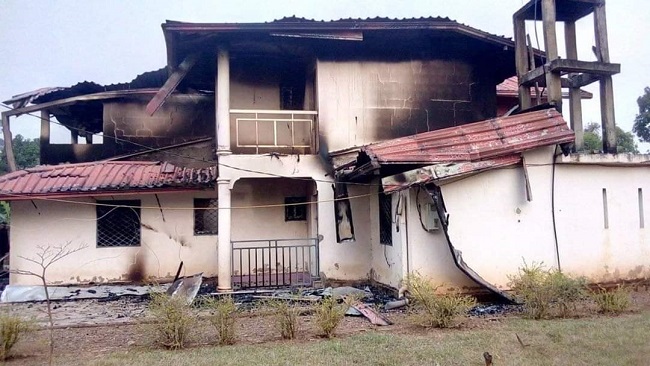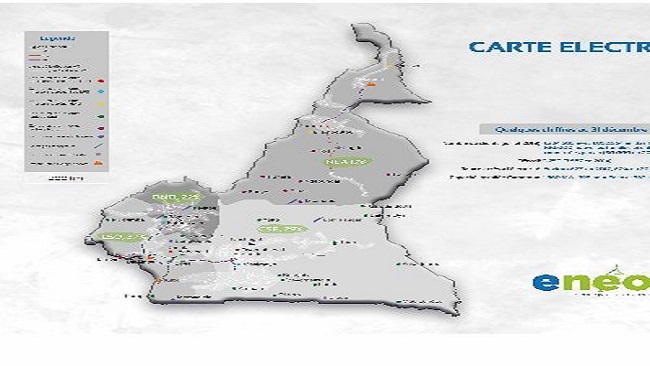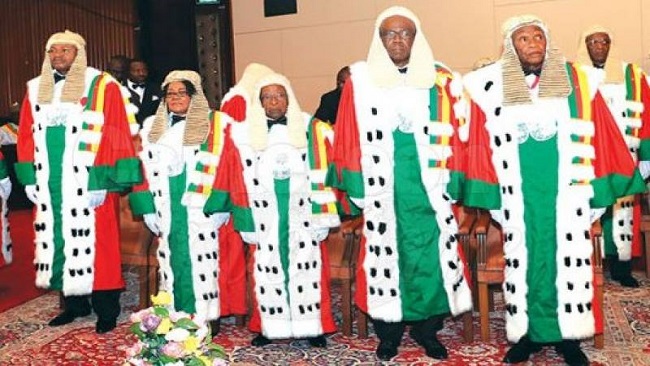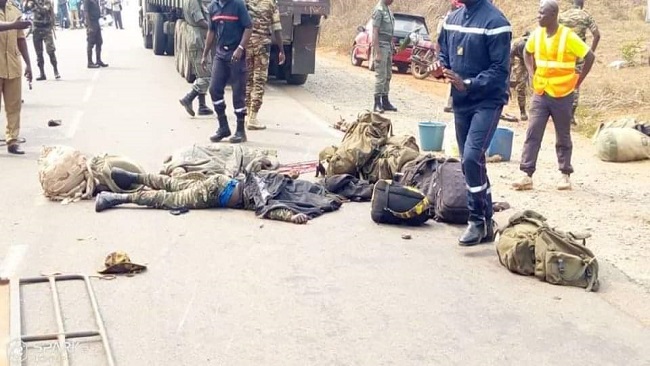20, February 2020
“Cameroon needs a bail-out. Not an economic bail-out. The country is crumbling” Dr Joachim Arrey 0
“Cameroon needs a bail-out. Not an economic bail-out. The country is crumbling, the world should stop playing spectator to an insidious genocide that is playing out in the country’s two English-speaking regions,” Dr. Joachim Arrey in an interview with the Cameroon Concord News Group Editor-in-Chief, Soter Tarh Agbaw-Ebai.
Cameroon Concord News: We are always happy to hear you share your views. We know you have good ideas that could help Cameroon make giant strides forward. What is your view about the killings in Ngarbuh?
Dr Joachim Arrey: Let me use this opportunity to extend my sincere condolences to all those who have lost loved ones in this conflict, especially to relatives of those who were killed in Ngarbuh recently. There is nothing that can shock a society like the killing of children and pregnant women. The world has been moved by this unfortunate situation and something needs to be done to ensure that this government does not continue to kill its own people. I think the country’s military has crossed many red lines and this one should not go unpunished. Somebody must be held accountable and since there is a chain of command, those who issued those orders must be as guilty as those who implemented those orders. It is wrong to kill human beings just for their views. People should be punished for the crimes they commit and not for the opinions they hold. Through this unfortunate event, the military has demonstrated that it has no regard for human life.
Cameroon Concord News: But the government is saying that the military did not commit the crime.
Dr Joachim Arrey: If you speak with investigators, they will tell you that very few criminals ever acknowledge their role in any crime. Many criminals usually refuse to acknowledge that they know something about the crime they have committed. We are talking here about a government that has mowed down many young people in the two English-speaking regions of the country. In that part of the country, very few people have confidence in the government and the military, which is supposed to be protecting the people, has transformed itself into a bogyman. The international community has called for a thorough and impartial investigation into the Ngarbuh massacres, but the government is still dilly dallying because of what it knows. However, I have good news for you. Some smart villagers have picked up the shell casings of the bullets that were used in the mass killings in Ngarbuh and they now say they will only hand them over to the United Nations when and if there will be an investigation. Once those bullets get handed over, there will be ballistics tests and the whole world will know who committed the act. I don’t trust the government. It has been caught with its hand in the cookie jar on many occasions. I hope you have not forgotten about its crime in the northern part of the country that sparked outraged around the world and when questioned, the communications minister at the time said the event took place in Mali. If a man has lied once, know that he can lie many times.
Cameroon Concord News: Besides, the killings in Ngarbuh, there are many things still going on in the two English-speaking regions.
Dr Joachim Arrey: Of course! The army has been given the carte blanche to shoot and kill. Yesterday, a young man was killed at a Bamenda hospital where he had dropped off some wounded persons. Since everybody in the two regions is now scared of soldiers, once you get stopped, you just start fleeing and that was what the young man did. There is a death sentence hanging over all Cameroonians living in the two regions like the Sword of Damocles. A trigger-happy soldier followed the young man to a hospital where Doctors Without Borders has its staff and gunned the young man down. The minister of defense issued a release that the soldier had been caught, but as usual, he span the story to demonstrate that the dead man was at fault because he had run a checkpoint. But the punishment for running a checkpoint is not summary killing. I am not a lawyer, but I am conversant with the country’s penal code. I also understand how the law works in Cameroon. The law has been designed to favor those in power. Those in power are very selective in their application of the law. This is unfortunate because the selective implementation of the law has entrenched a culture of impunity in our country.
Cameroon Concord News: Where do you see the country in the next five years?
Dr Joachim Arrey: Five years just look to me as an eternity. We have gone through a lot and if we must endure more of this over the next five years, then many of us will be dead. Many people of my age and those who are older are aging very fast because of the stress the government is downloading on the population. Corruption and inefficiency have a way robbing people of their dignity. Many people are unemployed, and many major corporations are not really doing well in Cameroon. The country is dealing with many crises and the impact of these crises is hitting the population like a ton of bricks. Cameroon needs a bail-out. Not an economic bail-out. The country is crumbling; the world should stop playing spectator to an insidious genocide that is playing out in the country’s two English-speaking regions. If you throw the economic hardship into the mix, then you get the frustration that is already manifesting itself in different ways. Unemployment, crime, dishonesty, corruption and mismanagement seem to have taken up residence in Cameroon because of a regime that has overstayed its welcome.
Cameroon Concord News: From the way you speak, would you one day like to participate in your country’s politics?
Dr Joachim Arrey: I don’t know what you mean by politics, but we all are political animals in a way. I hate injustice and corruption, but these two vices seem to be fixtures on our political and social landscapes. It will be unfortunate to turn a blind eye to such vices which are blighting the lives of our people. I will never seek political office, but I will work for a just society. I will always take this government to task for the way it has run our economy aground. The government has robbed Cameroonians of their pride. Cameroonians of all political stripes just want to be happy and proud that their country is doing well. Unfortunately, this is not what we are getting. The economy is on the brink and the politics leaves much to be desired. Our country has evolved from a struggling democracy to a full-blown dictatorship. We must change that. We must hold our so-called leaders accountable for their actions. We must continue mounting pressure until they understand that Cameroon belongs to all of us. Cameroon is our common property. We need to ensure that we are bequeathing a beautiful country to our children. We cannot allow a few people who are conducting themselves like robbers in paradise to ruin everything before they check out.
Cameroon Concord News: But you don’t live in Cameroon
Dr Joachim Arrey: I don’t have to live in Cameroon to fight for what is right. The world is a global village and we can live wherever we want, but we must not forget that we must ensure that all parts of that global village are functioning properly. I am a native of Ossing and I believe that it is incumbent upon me to ensure that Cameroon does not disappear just because some people are at the end of their lives. We all must leave this world someday, but we must ensure that we leave this world a better place than we met it. I will therefore continue to play my role to ensure that some people do not consider themselves as owners of our beloved country. I will continue to write and think aloud until somebody listens to me.
Cameroon Concord News: Thank you for your time. Any last word?
Dr Joachim Arrey: Thank you too for seeking my opinion. I would like to use this opportunity to call on the international community to intervene in Cameroon so that the country does not implode. Cameroon is going down the drain and if care is not taken, it could bring down an entire sub-region. The tragedy that is playing out in the two English-speaking regions is already creating problems for the Cameroon’s neighbors as Cameroonians of English expression flee violence to seek peace and security in neighboring countries. These countries do not really have the right infrastructure to handle large hordes of refugees. The refugees are living rough and many are dying because of the tough times. Cameroon should not be forgotten. The issues can be addressed. The people want peace, but their leaders seem to be in love with war, especially as some of them have already established a war economy that is lining their pockets. Thanks for giving me the opportunity to share my thoughts with your audience.


























23, February 2020
Coalition for Dialogue and Negotiations urges UN Secretary General Antonio Gutteres to convene an emergency Security Council meeting to directly address the Ambazonia conflict 0
The “Valentine’s Day Massacre” of pregnant women, babies, young children and elderly Southern Cameroonians by the Cameroon military in Ngarbuh is the most blatant demonstration yet of crimes against humanity and genocide against Southern Cameroonians, as noted by some. Per eye witness reports, soldiers visited the village in the early hours of Valentine’s Day and proceeded to sequentially slaughter citizens, burning down their homes and burning some alive. By the end of this massacre at least 35 people were confirmed dead including, as confirmed by the United Nations, 15 children and two heavily pregnant women.
The Coalition for Dialogue and Negotiation (CDN) joins the rest of the world in strongly condemning these horrendous and barbaric acts, which unfortunately is not the first of its kind by the army of the Government of Cameroon. While this massacre, like the previous ones, has received worldwide condemnation and the sympathy of the international community, the Coalition strongly believes it’s time for world leaders to take concrete actions to end this armed conflict and prevent further degeneration of an already dire humanitarian situation.
The Coalition strongly urges the United Nations Secretary General, Mr. Antonio Gutteres, to convene an emergency Security Council meeting to directly address the root causes of this conflict. The Coalition also urges the governments of the United States, the United Kingdom, the German Federation, Canada, France and most especially the African Union, to take a more proactive role in seeking a permanent negotiated solution that addresses the root causes of this armed conflict.
The Coalition reiterates its stance for an inclusive third-party mediated negotiation that addresses the root causes of the conflict, as the only sustainable means of resolving the Southern Cameroons conflict. As such, the Coalition believes that the International Conference on the Armed Conflict in the Southern Cameroons, scheduled for March 19-21, 2020 in Washington DC would constitute a step in the right direction.
About the Coalition for Dialogue and Negotiations
The Coalition for Dialogue and Negotiations (CDN) is an international non-governmental organization (NGO) with the specific goal of facilitating dialogue and negotiations towards ending the war in Southern Cameroons. CDN is made of professionals from all works of life and over 20 partner organizations worldwide advocating for an end to the war. CDN members work with its partners to strengthen international involvement in resolving the conflict and building durable peace in the conflict affected territories.